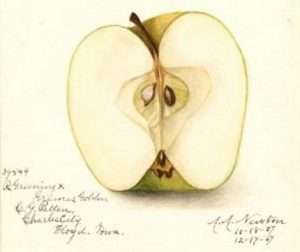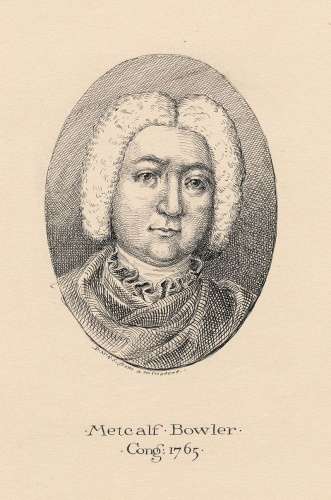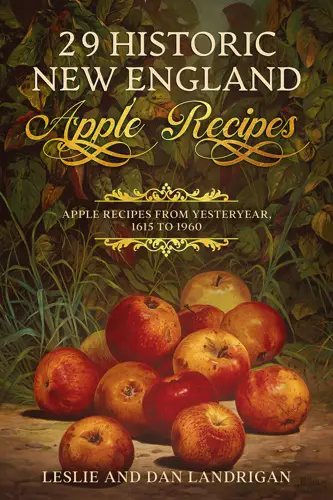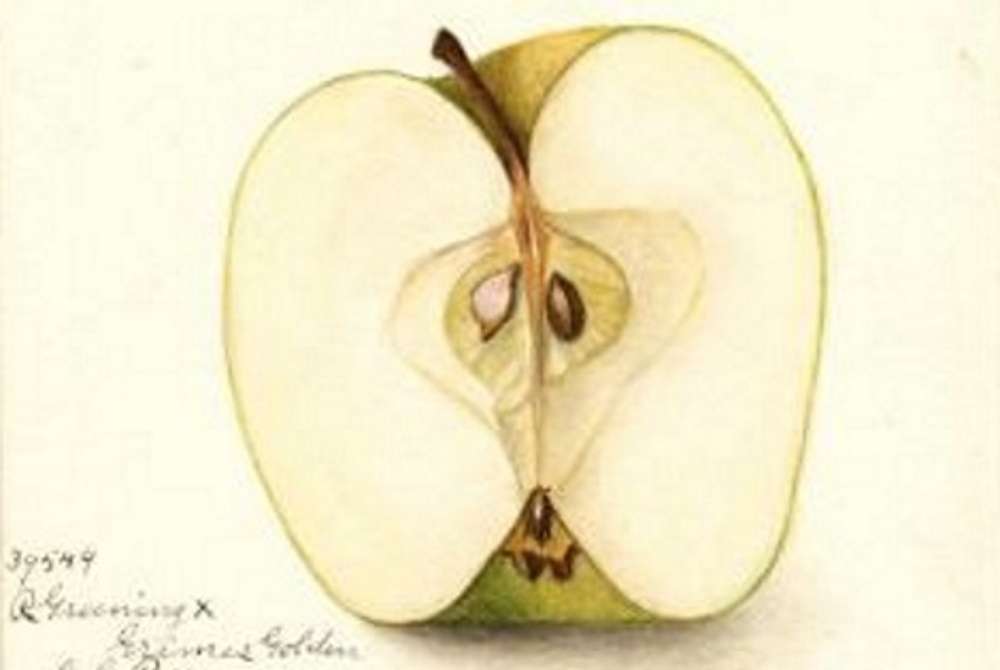In the days before Granny Smith apples became Martha Stewart’s preferred fruit for pies and ice cream, the Rhode Island Greening ruled. In the 19th century, Greenings were one of the most popular fruits grown in New York State.
 How they came to be is open to debate. The Wikipedia version states they originated around 1650 near Green’s End in Newport (now Middletown). A Mr. Green, who kept a tavern, developed the apple and gave away shoots of his apple tree to visitors. They were originally called “Green’s Inn” apples.
How they came to be is open to debate. The Wikipedia version states they originated around 1650 near Green’s End in Newport (now Middletown). A Mr. Green, who kept a tavern, developed the apple and gave away shoots of his apple tree to visitors. They were originally called “Green’s Inn” apples.
There’s a better story, though, told by Glenn Laxton in his book, Hidden History of Rhode Island.
The Greening
Metcalf Bowler, born in 1726 in London, England, emigrated to Newport, R.I. He then got rich and owned ships and several large houses. His real love was his garden in his country house in Portsmouth. He also spied during the Revolutionary War, but it isn’t clear for which side.

Anyhow, one day the captain of one of his ships returning from East India rescued a young man shipwrecked at sea. The shipwreck victim turned out to be a prince of Persia. The prince’s grateful father gave Bowler’s captain an apple tree in a porcelain pot, and said it was descended from the Tree of Knowledge.
Bowler ended up with the tree (perhaps the captain didn’t care for gardening, or probably didn’t have the time, being away at sea and all). He put it in his hothouse and went to bed. The story goes that an angel came to him in a dream and told him to take the tree out of the hothouse and put it in the garden. Bowler followed his dream and the tree flourished.
There’s more. According to legend, there are only two places on earth that can grow Greenings to the same perfection: Rhode Island and the Garden of Eden. A bit of marketing hyperbole, perhaps.
Cider
Bowler began to make Greening cider, which he named Eden Champagne. In the early years of the Revolution (before the British trashed his farm) he hosted a dinner for George Washington and the Marquis de Lafayette. He offered them two bottles of the best French wine and 12 bottles of Greening cider. Each guest got three glasses, two filled with wine and one filled with cider. They proclaimed the Eden champagne the best they ever tasted. The story goes that the guests drank all the cider, but the French wine remained untouched.
Of course, the guests could have just been polite.
 Learn more about New England apples and New England apple recipes in 29 Historic New England Apple Recipes. Available now in paperback from Amazon.
Learn more about New England apples and New England apple recipes in 29 Historic New England Apple Recipes. Available now in paperback from Amazon.
This story about the Greening apple was updated in 2023.


3 comments
[…] Bowler, an emigre from London, England, became a very rich man as a merchant in Newport, R.I. He was an ardent horticulturist who maintained the most beautiful garden in Portsmouth, R.I., before the American Revolution. Though he was an accomplished politician and businessman, Bowler is remembered for cultivating the popular Rhode Island Greening apple. […]
[…] Today his homestead is a house museum on the National Register of Historic Places. Ten years ago, Leslie Cummins and Tim Seabrook of 5 Star Nursery in nearby Brooklin replanted his orchard around a 200-year-old pear tree still standing. They planted three trees he wrote about in his journals: Ribston Pippin, Golden Russet, and Roxbury Russet. The heritage orchard includes a group of apple trees that existed in New England before 1800, including the Rhode Island Greening. […]
[…] Orchards and the Temperance Movement. Apple trees by the thousands, perhaps millions, were cut down as the temperance movement swept America in the […]
Comments are closed.